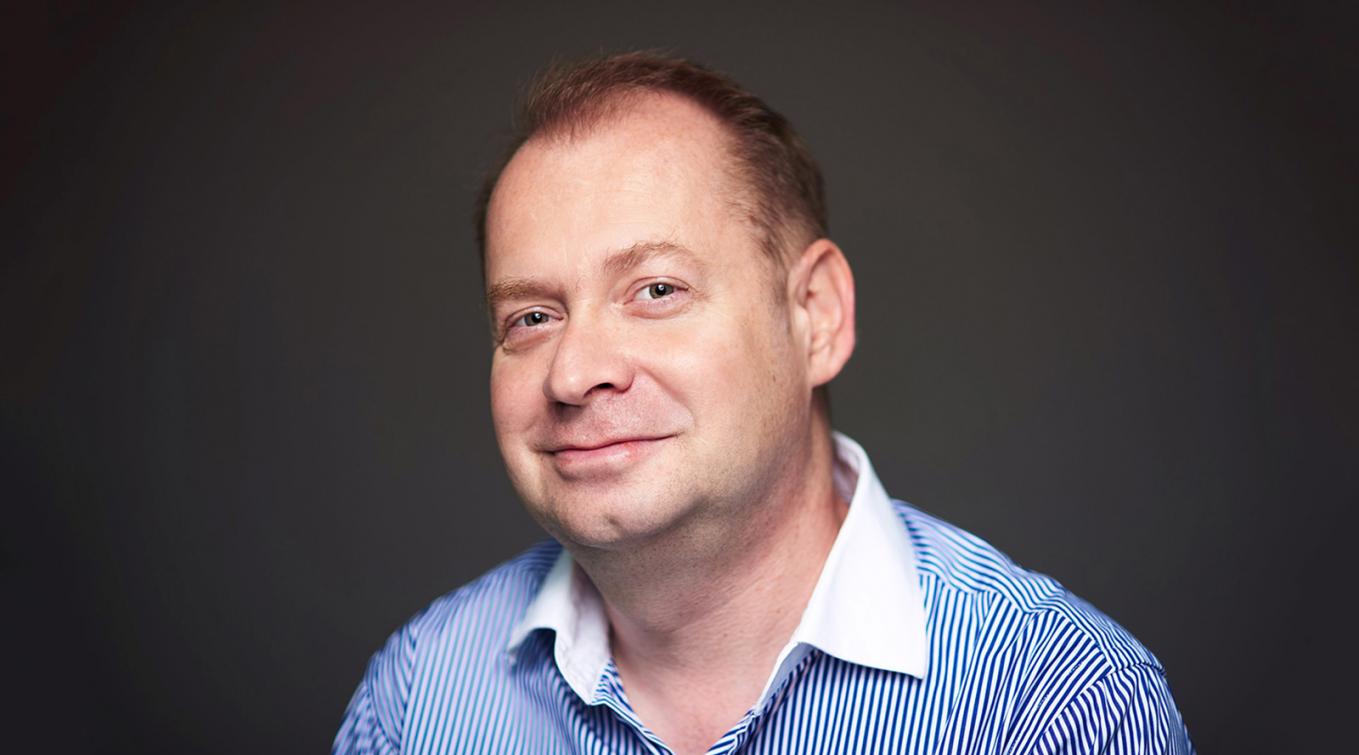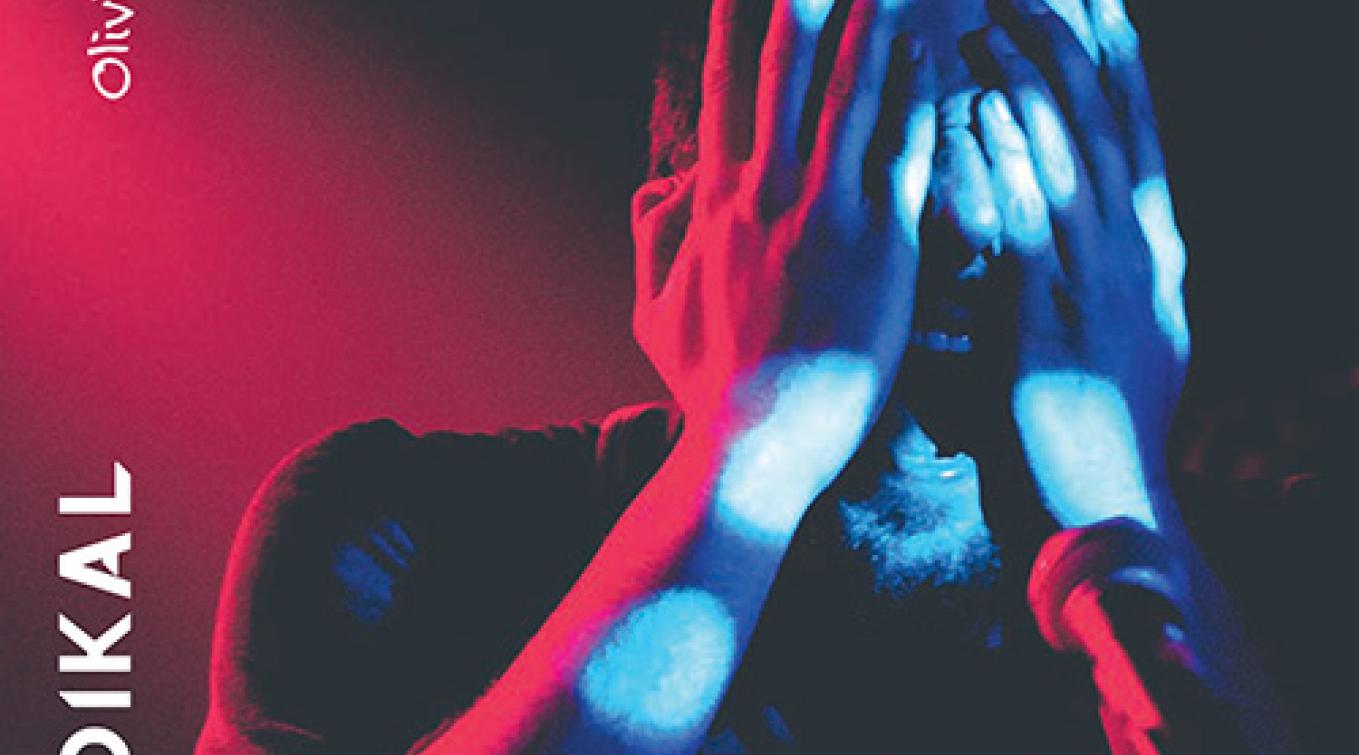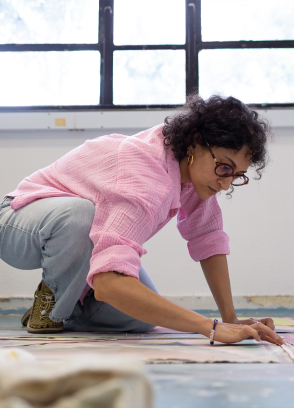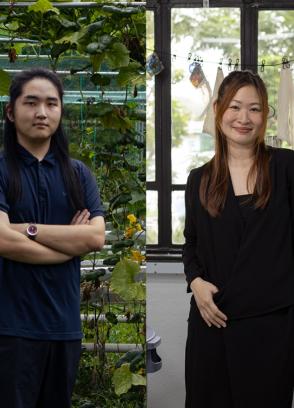15 November 2017
Radikal (2017) is a story that follows a young Indonesian DJ’s journey from one world of extremes—the hedonistic nightlife of Jakarta where drugs, sex, and alcohol prevail—to another: the radical position, preached by extremists to appeal to the lost and angry.
Written in French, this debut novel by MA Creative Writing alumnus, Olivier Castaignède, has earned high praise. On Amazon, Frederic Lambert likens Radikal’s all-consuming narrative to a “thriller-like page-turner”, applauding Olivier for his well-researched examination of Jakarta’s underbelly society. Another reader, Hedwidge, wrote on Livre Addict that Radikal was like “an infernal circle from which the reader cannot extricate himself.”
While encouraged and reassured by such feedback, Olivier is a perfectionist at heart. “Whenever I reopen Radikal, I start to focus on sentences that don’t read well, and would feel compelled to re-start the entire book. There are always ways to improve, especially after time has passed and you’ve developed different ideas.”
These comments of Olivier’s come from a place of growth. After all, it is almost one and a half years since he completed writing Radikal. During this time, he enrolled in LASALLE to pursue a MA in Creative Writing.
The MA Creative Writing Programme in LASALLE is Singapore and Southeast Asia’s first taught Master’s in Creative Writing, where aspiring authors are part of a rich community of visual artists, filmmakers, designers, actors and other arts professionals. Less than a year since its inception, the Programme now boasts its first full-length published novelist in Olivier, as well as a Golden Point Award-winning writer in Saleem Hadi, who walked away with Singapore’s top prize for an unpublished English short story in 2017.
When asked about his experience, Olivier said that he enjoyed how the programme brings together like-minded individuals who have a passion for the literary form. Remarking that “writing is actually a very solitary activity”, Olivier shared that he looked forward to the constant exchanges with peers, and that the stimulating environment has enabled him to sharpen his writing and command of the English language.
Compared to the budding author he started out as nearly 25 years ago, Olivier has come a long way. He recalled vividly how, at the age of 20, he gave up his dream of publishing a novel, due to the common misperception of the writer as literary genius – a lone, eccentric individual born with an innate brilliance to write. “After a month of writing about 15 pages, I got really disappointed in myself, in my writing. Seeing it going nowhere, I thought I’d better do something else with my life,” said Olivier.
This led him to focus on his studies in the field of engineering, and he did not so much as lift his pen again. His voracious reading appetite, however, led him to stumble upon Lawrence Block’s Writing the Novel From: Plot to Print (1979) in 2015, and this was the impetus that reignited his dream of publishing a novel.
In his own words, “I had an epiphany when I read Block’s manual. There was never anyone to teach me, so I had no idea that there were actually some methods to writing. Once I learnt that there were techniques to go about structuring your plot, or developing your character, the writing became easier, so I started practising more.”
With these writing myths debunked, Olivier learned that writing was not just an innate gift, but rather a craft that can be honed with time and effort. In fact, it took Olivier a good 13 months, numerous drafts and countless back-and-forths with his beta readers, family, friends and editor before submitting Radikal to publishers in France.
He further confessed that there was a stage during the second draft, when he was struggling to map out a consistent main character, that he felt like giving up. “Hendro’s character journey did not make sense. Even though I knew he had to land ‘here’ at this point, I could not find the path to bring him ‘there’. I was stuck, and I did not know how to solve this.”
As a story that touched upon some very dark themes, it was fortuitous then that Olivier’s father is a professional psychologist who was able to recommend him books to understand the psyche of people who fell into violence and use it to appease their inner turmoil.
Such research, Olivier noted, is part and parcel of a book’s development, and he advised individuals who are embarking on their first novel to pick a context they know well. This ensures that one does not feel like a fish out of water throughout the writing process, and also allows one to tap on his or her own vast wealth of primary material.
His second piece of advice is for authors to curb their tendency to polish their prose immediately. Olivier observed that writing is very similar to running a marathon, in that individuals have to learn how to pace themselves given the long haul they are in for. “You’ll often realise that by the time it comes to the second draft, and especially after receiving feedback, a lot of things do not fit anymore. You therefore don’t suffer so much when you have to cut things out.”
Spoken from experience, Olivier has yet to lose steam even with one book down. In fact, he has several drafts completed for his second novel and is looking to get it in print by the end of 2018. This time round, the novel is set in Ethiopia, another destination Olivier is familiar with. He lets on that this second novel is less grim and offers more hope of redemption for his main characters and the reader.





